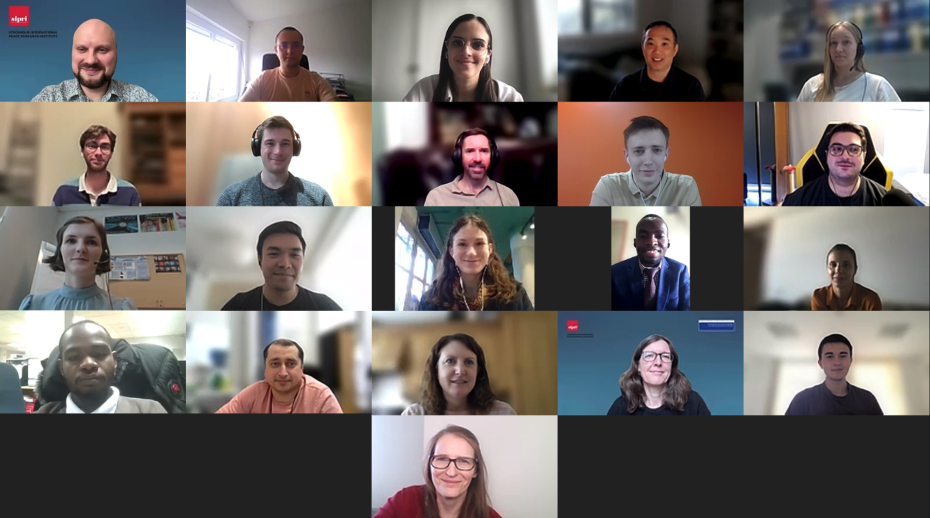
On 28–31 May, SIPRI and the European Union Non-Proliferation and Disarmament Consortium (EUNPDC) delivered an intensive online introductory course on chemical and biological weapons for graduate and postgraduate students. Participants learned about the proliferation of chemical and biological weapons, efforts to eliminate them, and the various mechanisms used to control their spread, as well as endeavours to reduce the risk of chemical or biological agents in terrorist attacks.
The four-day course covered topics such as the fundamentals of chemical and biological weapons and the current challenges posed by them. Students also discussed the role of EU institutions in addressing these challenges.
The course was attended by 19 students from 16 countries and was instructed by renowned experts on non-proliferation, arms control, disarmament, export controls, verification and related subjects from SIPRI, other European research centres, think tanks and international organizations.
About the SIPRI Weapons of Mass Destruction Programme
The Weapons of Mass Destruction (WMD) Programme at SIPRI seeks to contribute to the understanding of trends and developments pertaining to nuclear, chemical and biological weapons. It considers their implications for an increasingly complex security landscape and seeks to identify approaches to address the risks and challenges WMD pose. To this end, the programme examines the political, institutional, legal and technical aspects of WMD governance, focusing on international efforts at arms control and disarmament, materials security and non-proliferation, and risk reduction.
Click here to read more about the SIPRI WMD Programme.